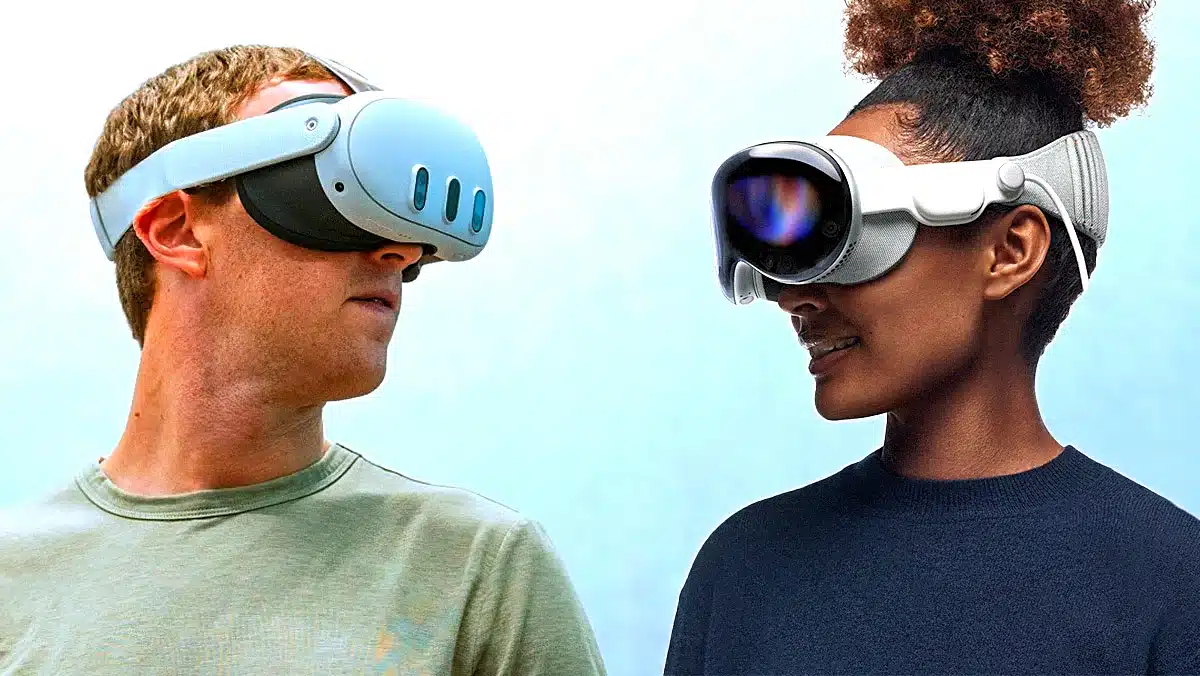The first reviews of the Apple Vision Pro are online. The tests reveal great expectations for the future – and current construction sites
Apple’s new high-tech glasses go on sale in the USA on February 2nd. The reviews provide a first impression of Apple’s Vision Pro.
We don’t really need to mention that almost all test reports criticize the extremely high price of 3,500 US dollars. But where do the reviewers see the major strengths and weaknesses?
Apple Vision Pro: What the first tests of the glasses say about design and wearing comfort
The glasses clearly look futuristic, but do they also feel high-quality? CNBC describes the build quality as excellent, which should come as no surprise given the price.
“Apple has used premium glass, screens and metals. It feels like a premium headset and is comfortable to wear. “
And the wearing comfort? In short: less positive. The Verge comes to the following conclusion:
“The most noticeable thing about the hardware after a while is that it’s just … heavy “
Tom’s Guide takes a similar view. The author Mark Spoonauer doesn’t find them unpleasant, but breaks are necessary for him:
“After wearing the Vision Pro on and off for several hours, I didn’t find it uncomfortable, but I felt the need to take regular breaks due to the weight “
Table of Contents
Merging virtual and real reality
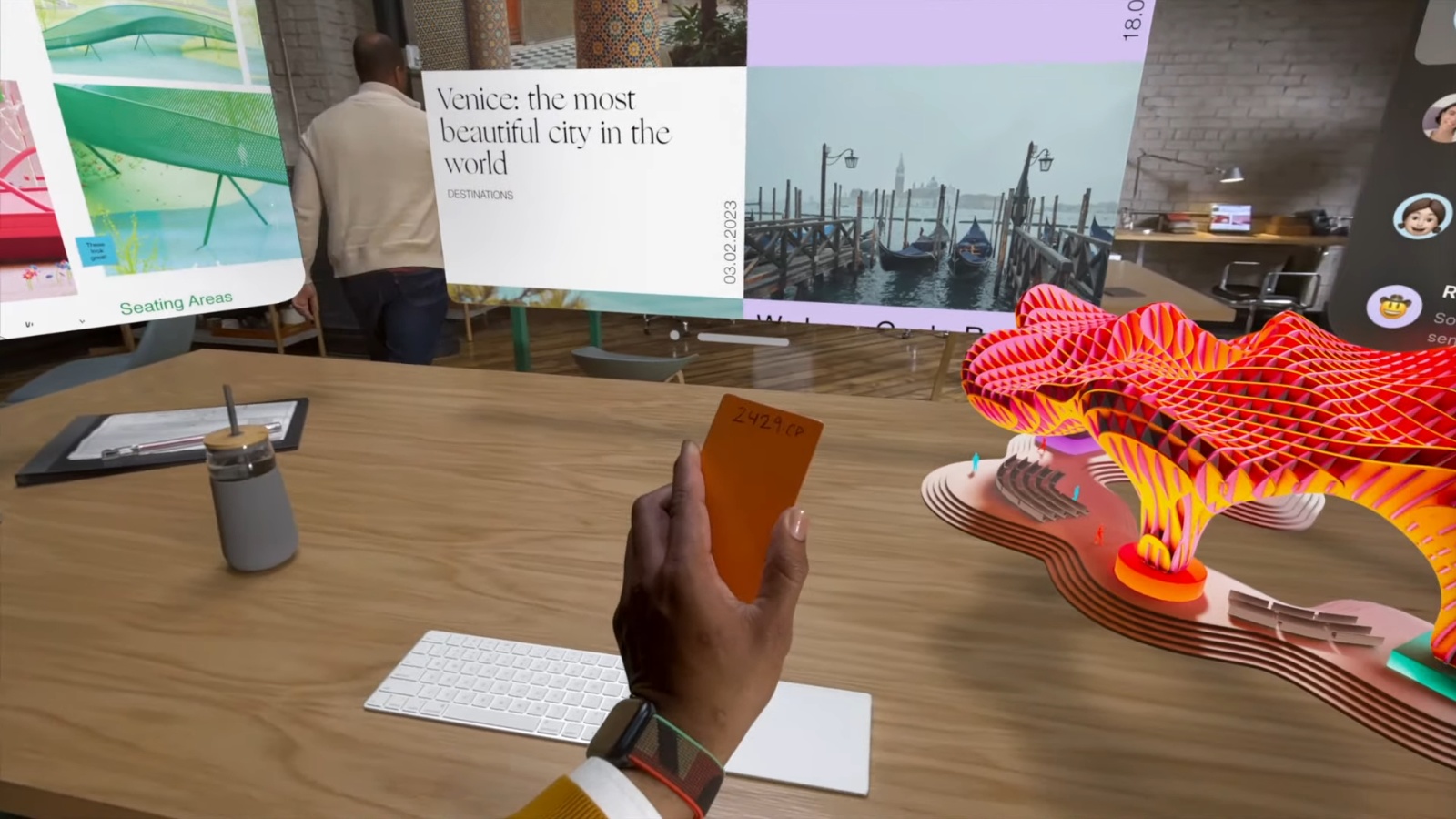
Glasses on and … reality on? The outside world is transmitted to your eyes as 3D video in real time through the glasses, including motion blur from the cameras, which increases in poor lighting conditions, as author Nilay Patel from The Verge describes:
“It’s by far the best video passthrough ever delivered in a consumer device. … Poor light also causes the overall sharpness of the video passthrough to decrease when the noise reduction kicks in “
Author Scott Stein from CNET agrees with the conclusion:
“Apple’s passthrough cameras are the best I’ve ever seen, with almost no distortion. There is a little blurring and lag “
So Apple seems to have delivered well on this point.
Vision Pro with two micro-OLED displays
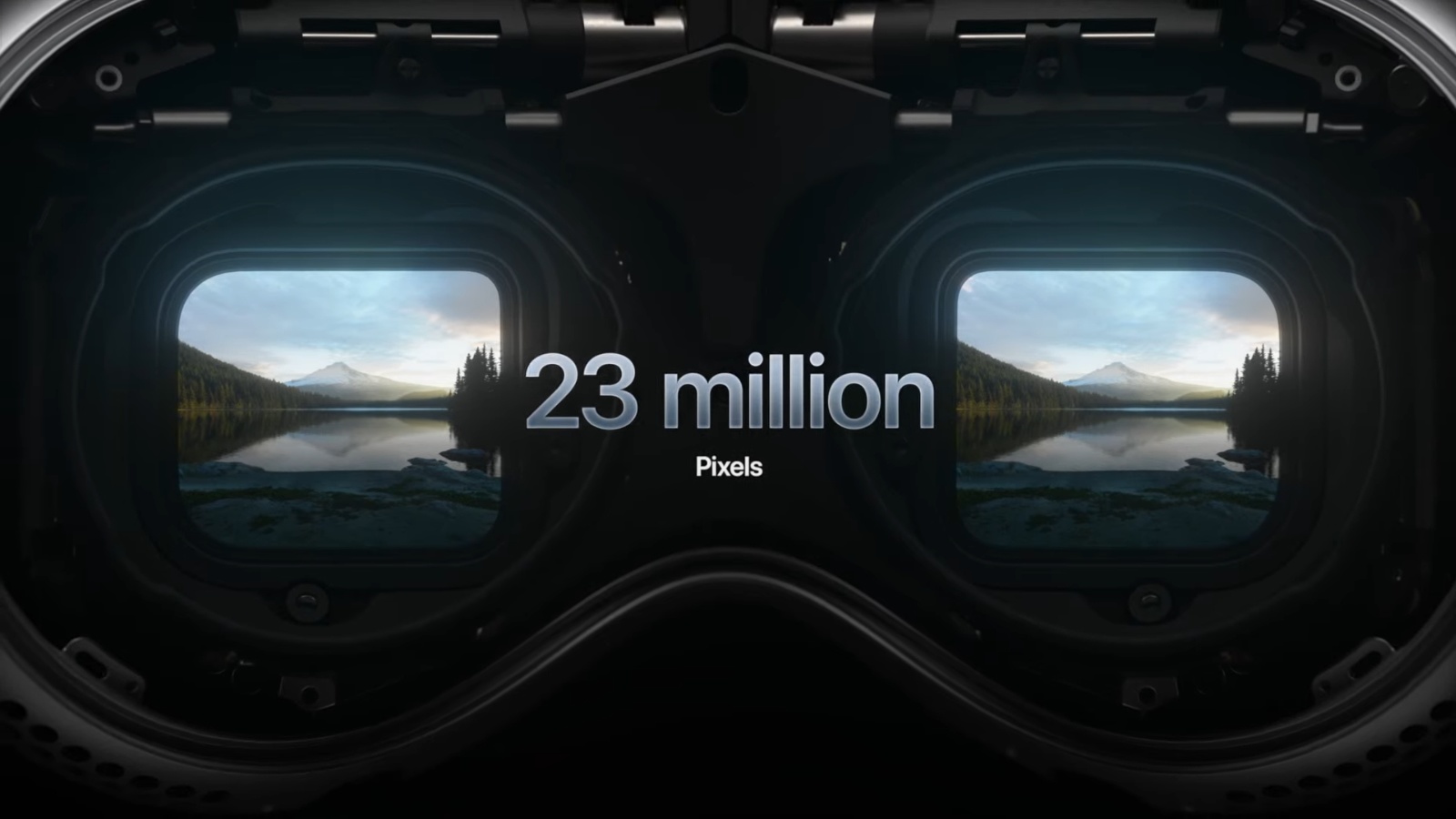
Apple’s mixed reality glasses come with two impressive micro OLED displays. The Verge writes:
“Apple is very proud of the displays in the Vision Pro, and for good reason. […] They also look incredibly good in general – sharp enough to read text without thinking about it, and bright enough to do movies justice. “
Nilay Patel also points out the limitations: The field of view is limited and significantly smaller than the 110 degrees found on the massively cheaper Meta Quest 3.
Color deviations and blurring can also be observed towards the edges, which further restrict the field of vision.
The gesture control impresses until it no longer impresses
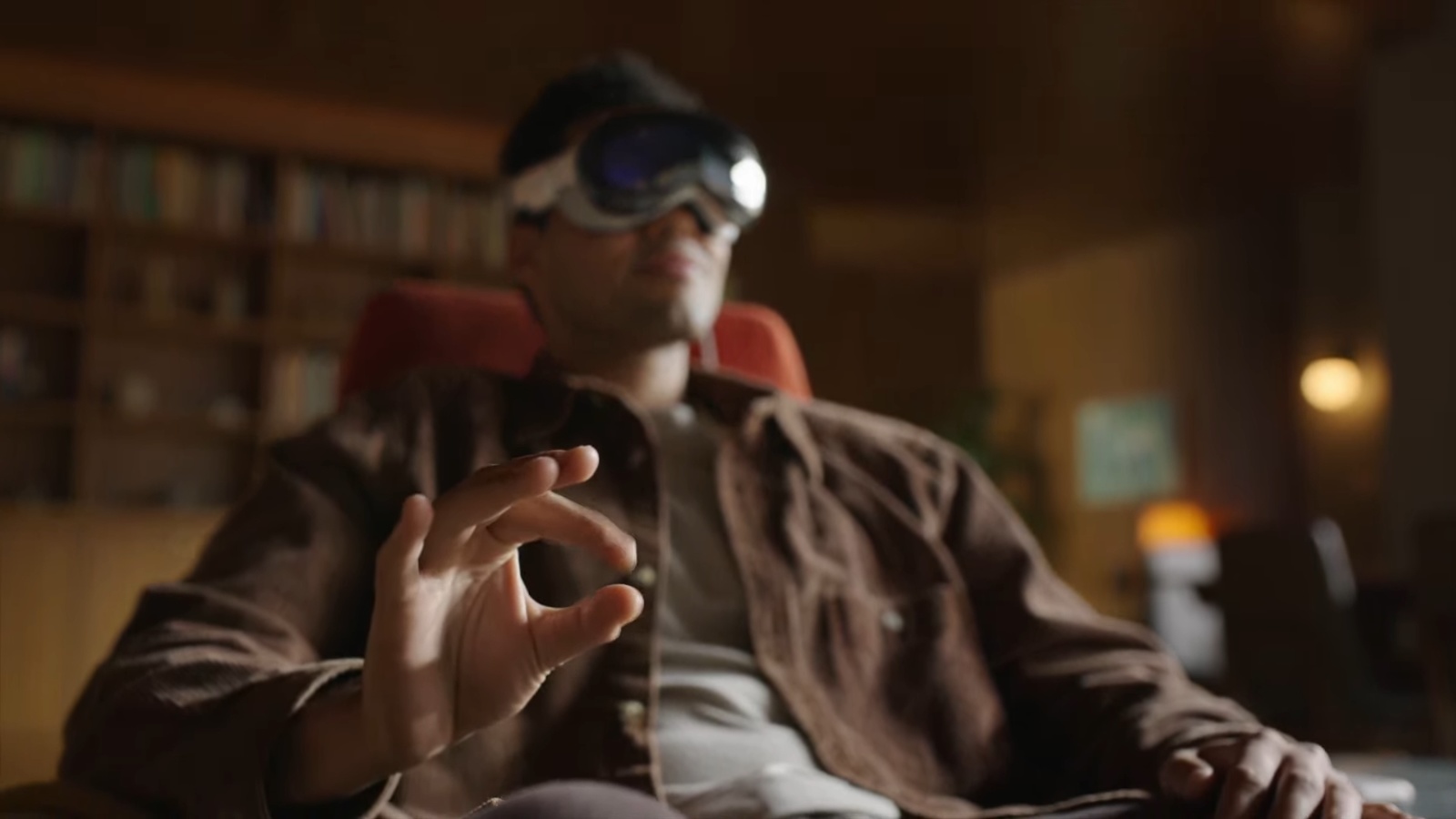
The elements of the glasses are controlled with the eyes and hands, alternatively also by voice control. The voice output for the (gesture) control of the Vision Pro is pretty much identical.
Nilay Patel writes that the first few times you use the hand and eye controls on the Vision Pro are impressive. However, he adds that this changes after the first impression and that in some cases the controls actually make it more difficult to use:
“But the next time you use hand and eye tracking, it no longer feels like a superpower – and in some cases it actually actively makes the Vision Pro harder to use. It turns out it’s quite distracting to have to pay attention to what you’re trying to control.”
Tom’s Guide also criticizes the floating numeric keypad, which was not convincing in the test. Author Mark Spoonauer therefore resorted to voice control for input
Movie viewing, 3D videos and photos
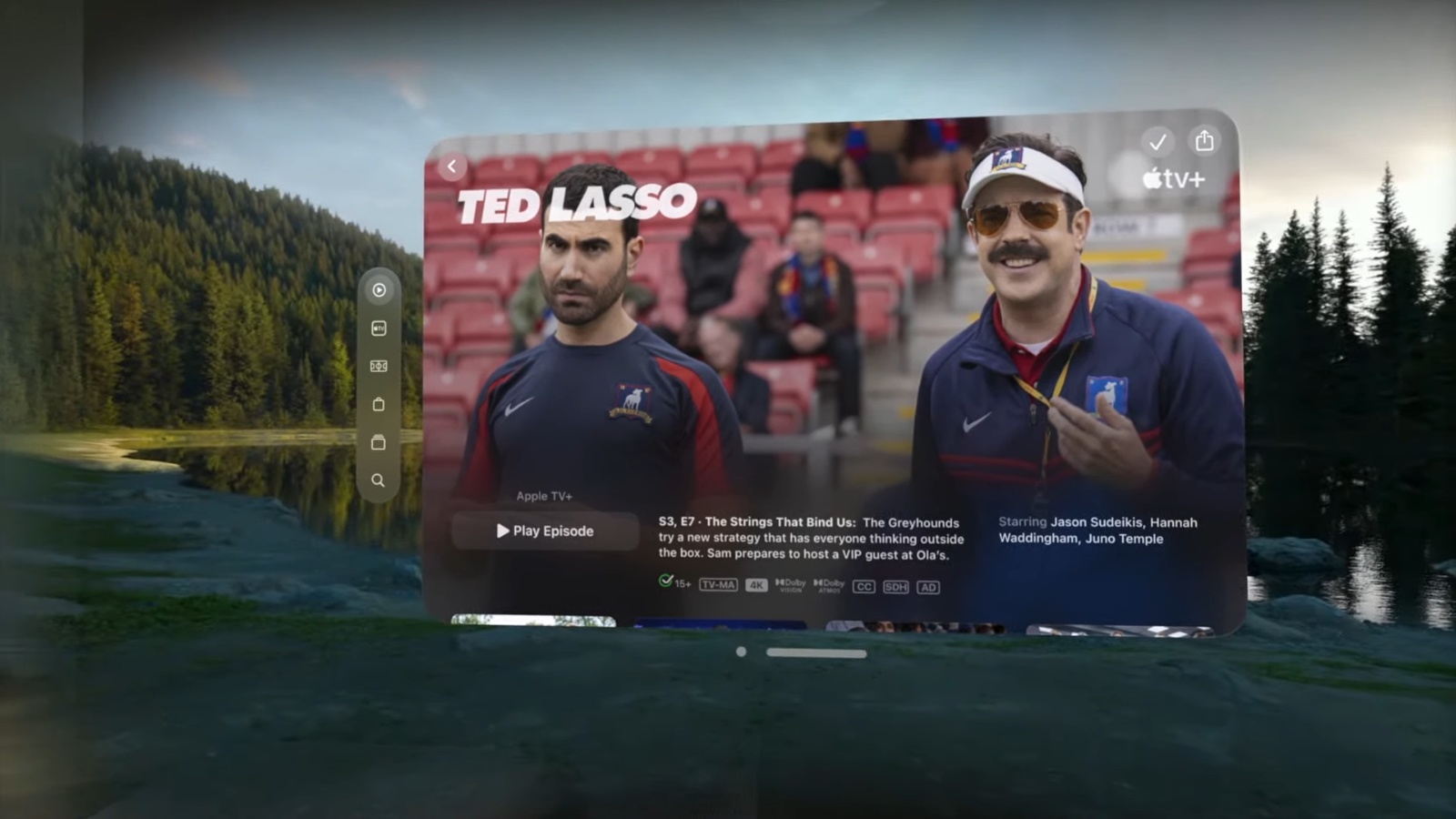
Movie watching is said to be one of the highlights of the Vision Pro. Scott Stein sums it up as follows:
“It’s not just good enough to watch movies, as Apple keeps saying. It’s also better than any TV in my house.
The Verge comes to a similar conclusion:
“Watching movies on the Vision Pro is a lot of fun, especially in the Apple TV app’s immersive theater, where you can choose where you want to sit. “
The sound quality of the headset is also positively emphasized. However, the testers agree that the loudspeaker noise can be heard by bystanders and they may feel disturbed by this.
Apple has touted the spatial video for the Vision Pro as a highlight in the past. After all, the iPhone 15 Pro now also has the function to record spatial videos for the glasses.
Opinions differ on this topic. Tom’s Guide describes the function with great enthusiasm:
“I was almost speechless when I watched a spatial 3D video of my three dogs walking towards the camera. It’s so captivating that you might get a little emotional. “
CNET, on the other hand, describes this feature in a rather cautiously positive light:
“It’s not the main reason I would use a Vision Pro, but it’s compelling. It’s fun to display all my photos and videos on one big screen “
Author Nilay Patel from The Verge is not blown away by this feature at the end of the day
How does visionOS fare in everyday life?
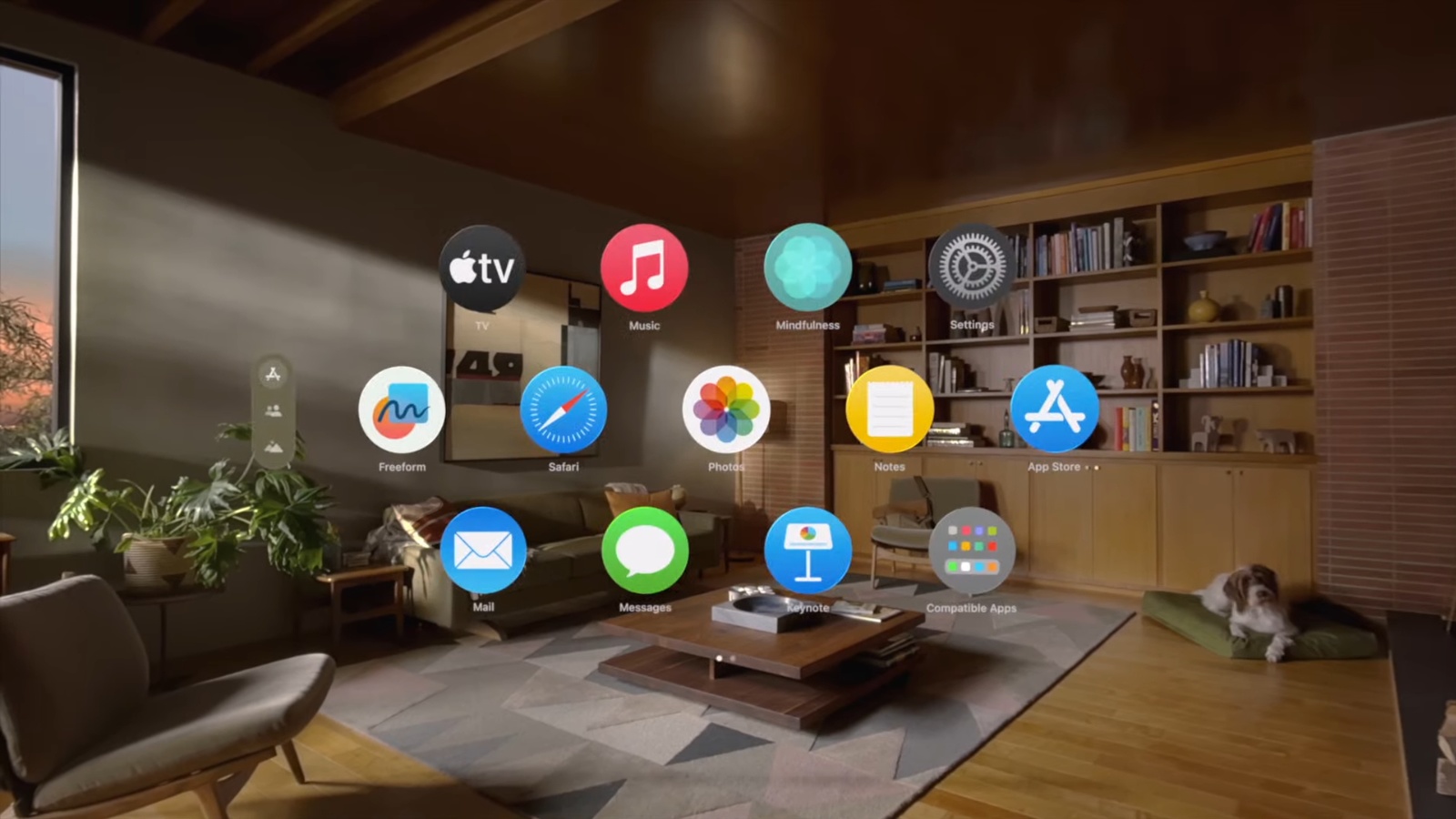
The operating system of the glasses is well received by all testers. Joanna Stern from the Wall Street Journal summarizes it as follows:
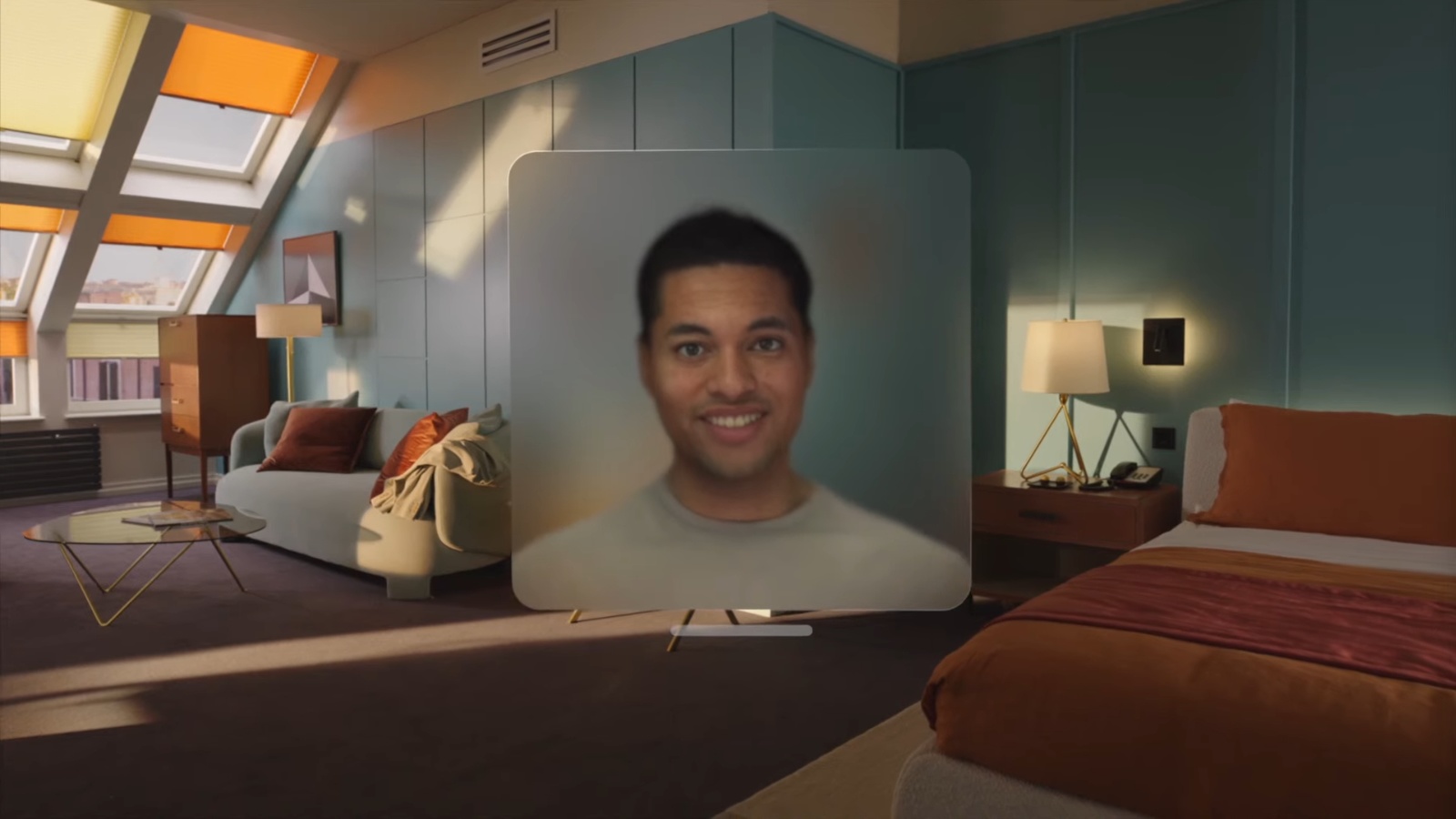
” … much of what the Vision Pro can do feels like science fiction. I’m scrolling through apps all over my home office. Several virtual timers hover above my stove. “
These windows can be supplemented by an iPad app or a Mac connected to Wi-Fi. However, Apple currently only allows one screen display on the Mac.
CNET also describes working with visionOS and the headset quite positively:
“There are glitches and sometimes the controls feel too fluid, but in its initial form I’m shocked at how good it already is. “
However, the lack of many applications typical of smartphones or Macs is one of the main criticisms.
Vision Pro: EyeSight and Persona
Did you know? Apple offers an optional case for the Vision Pro so you can take it with you wherever you go. Cost: a whopping 200 US dollars.
Release in Germany: It remains to be seen when exactly the glasses, including the “affordable” carrying case, will be available in or on the shelves of Apple Stores in this country. The company has announced that this should be the case in spring 2024.

